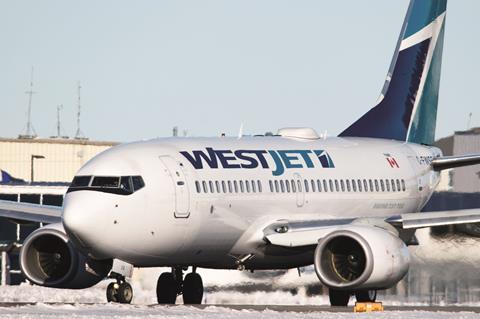Canadian restrictions on foreign ownership of domestic airlines and the country’s model for funding air transportation infrastructure are among factors limiting smaller carriers from bringing more competition to Canada’s skies.
That is according to a new report from the Competition Bureau of Canada, which urges the Canadian government to make policy changes allowing foreign entities to own 100% of Canadian airlines that operate only domestic flights. Doing so could spur more competition, it says.
Canada’s current rule allows non-Canadian entities to own no more than 49% of Canadian airlines, up from 25% prior to June 2018.

The report says the 49% cap is still too restrictive because it limits the ability of small and new airlines to secure financing, therefore hindering the ability of competitors to challenge Air Canada and WestJet, which dominate the market.
“New airlines face daunting challenges both entering the market and growing into competitors that last long-term,” says the report, released on 19 June. “Some barriers for these entrants just naturally occur. But others could be addressed through policy changes.”
Air Canada in 2023 carried 34% of Canadian air passengers travelling domestically, while WestJet carried 30% and Flair Airlines and Porter Airlines held another roughly 10% share each, says the report.
“Canada’s aviation sector is constrained by foreign ownership limits and restrictions on foreign carriers operating domestic routes in Canada,” it adds. “These restrictions make it harder for airlines to access capital from investors outside Canada”, particularly to the detriment of “new and smaller airlines”.
It urges Canada’s government to “create a new class of airline that operates only in Canada” and that can be owned up to 100% by foreigners. It also calls for single non-Canadian entities to be able to own up to 49% of Canadian airlines, up from 25% now.
“Domestic aviation can then benefit from greater global expertise,” says the report.
Additionally, the competition watchdog says Canada’s “user-pay” aviation infrastructure funding model poses particular challenges to smaller airlines. Some 30% of each dollar travellers spend on airline tickets is diverted to pay for services including air travel security, air traffic control and airport landing and access.
“Lowering these costs would help promote competition because more companies could start offering sustainable services. This is especially true for [ultra-low cost carriers]. They rely on low fares to attract new travellers,” the report says.
The agency is calling for the changes despite a recent uptick in air travel competition thanks to expansion by Porter Airlines and Flair Airlines.
“The history of airline entries and exits suggests that these competitive gains remain fragile, especially during economic shocks,” it says.


























